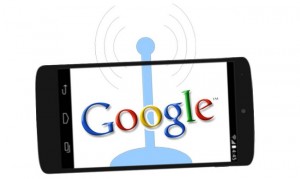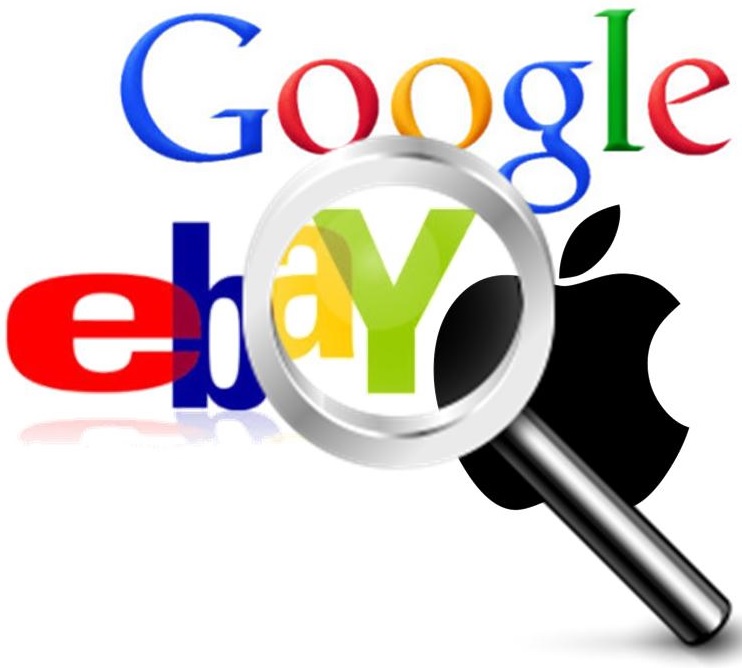The tech giant will be compatible with Bluetooth LE devices and will compete directly with Apple’s device.
Google has now announced its new open-source platform, Eddystone, for devices with Bluetooth LE, and that will make it possible to communicate with other compatible devices such as smartphones.
This will also place the company in direct competition with the iBeacon from Apple.
The Eddystone platform is the latest addition to the geolocation marketplace, which is an integral component to the Internet of Things (IoT) ecosystem. The use of this type of technology could potentially enable a great deal more in terms of contextual services that are available within the actual physical world. The use of beacon tech makes it possible for low-power Bluetooth enabled gadgets to effectively transmit information to smartphones and other similar mobile devices.
Eddystone and other beacons can’t track a smartphone, but the mobile device can detect the beacons.
 Once a smart device has detected a beacon, it is capable of receiving data from it. The user of the mobile device has control over what type of data he or she wants to receive by way of the settings that have been allowed in the apps that have been downloaded. Based on those settings, the smartphone chooses which beacon information will trigger a response within the mobile device.
Once a smart device has detected a beacon, it is capable of receiving data from it. The user of the mobile device has control over what type of data he or she wants to receive by way of the settings that have been allowed in the apps that have been downloaded. Based on those settings, the smartphone chooses which beacon information will trigger a response within the mobile device.
Apple was the very first tech company to step into that form of geolocation and integrate the capability with its iOS 7. At the start, the primary focus for this technology was essentially geared toward retail. Since then, there has been notable growth in the adoption of these beacons among major retailers such as Lord and Taylor’s and Macy’s. Equally, McDonald’s and Starbucks have also used this location based tech in some locations. In the majority of instances, the tech is used to transmit specific promotions, or deals to consumers based on their specific location within a store.
While the outcomes have been mixed, so far, Eddystone is entering into this space at a very early time in its existence and there remains a tremendous amount of potential for innovation, growth and usage.
New data is showing that many of the industry giants are making location based progress.
According to some of the latest information that has been released by ABI Research, a number of industry giants – including Google, Apple, and eBay – are placing their focus on making considerable moves into the realm of geolocation and its many possibilities.
Though this is not necessarily anything new, it is the fact that they are taking it indoors that is drawing attention.
To start, the estimates by ABI Research have suggested that the geolocation indoor market will be worth more than $4 billion by 2018. This was revealed in the quarterly Location Technologies Market Data which is issued by that agency. It provides a measure of the adoption of indoor geolocation technologies, mapping, as well as businesses that are making their way into this particular space.
By the end of next year, the overall market of geolocation technology installations will be greater than 25,000.
 This, according to the ABI Research data that was released in the report. It also pointed out that smartphones that are capable of supporting indoor geolocation technology will have reached the hundreds of millions over the span of the next two years. The result is that virtually every major company will have begun to take considerable steps into this sphere.
This, according to the ABI Research data that was released in the report. It also pointed out that smartphones that are capable of supporting indoor geolocation technology will have reached the hundreds of millions over the span of the next two years. The result is that virtually every major company will have begun to take considerable steps into this sphere.
Patrick Connolly, an ABI Research senior analyst, stated that “Apple’s new A7 co-processor coupled with the acquisition of WifiSLAM highlights indoor as a priority.” He went on to say that “Both Apple and eBay have announced support for dedicated BLE beacons, a technology that is set for a huge 2014 as major IC and device OEMs make it widely available.”
Connolly also explained that Google is maintaining an expansion of geolocation based indoor mapping and that it has been discussing some of its intentions for this technology quite openly at I/O. He also added that it isn’t just the smartphone manufacturers that are involved in this technology, as there have been four large AP providers (Motorola, Cisco, Ruckus, and Aruba) that have acquired business within this space. He noted that it was interesting to find that Nokia had held its own indoor and mapping capabilities, showing that this was being viewed as a region in which considerable future growth was possible.
 Once a smart device has detected a beacon, it is capable of receiving data from it. The user of the mobile device has control over what type of data he or she wants to receive by way of the settings that have been allowed in the apps that have been downloaded. Based on those settings, the smartphone chooses which beacon information will trigger a response within the mobile device.
Once a smart device has detected a beacon, it is capable of receiving data from it. The user of the mobile device has control over what type of data he or she wants to receive by way of the settings that have been allowed in the apps that have been downloaded. Based on those settings, the smartphone chooses which beacon information will trigger a response within the mobile device.
 This, according to the ABI Research data that was released in the report. It also pointed out that smartphones that are capable of supporting indoor
This, according to the ABI Research data that was released in the report. It also pointed out that smartphones that are capable of supporting indoor 